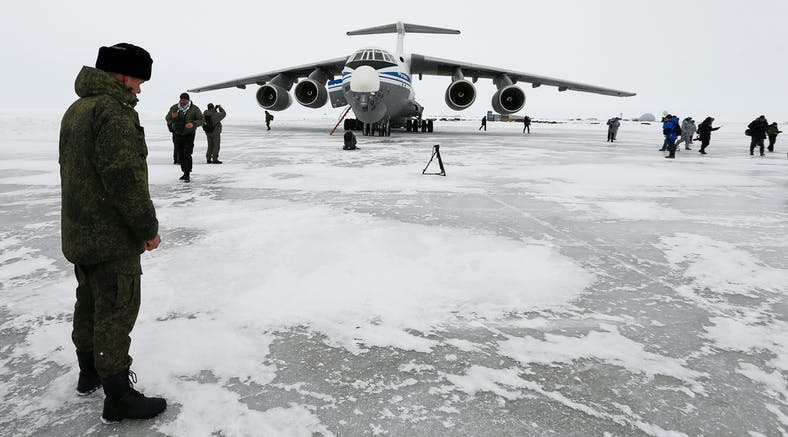The Star Tribune, the largest newspaper in Minnesota, interviewed the NATO Chief Scientist Dr Bryan Wells to discuss climate change and the evolving role of Science in the Western Alliance.
Dr Wells stated that there is a body of scientific evidence that links climate change to human activity.
 Alexander Zemlianichenko • ASSOCIATED PRESS Alexander Zemlianichenko • ASSOCIATED PRESS
Climate change is affecting primarily and most quickly the Arctic, but is also affecting our own military and operations, areas where NATO might be called on in the future to lend assistance.
All of this might impact security, NATO relies on science to assess and investigate how climate change affects threat assessment and military preparedness.
The risk of conflict in the Arctic is rising. Several Countries have sought to assert their influence over wide areas of the Arctic, they are showing an increasing worrying interest in the region, NATO has to stay vigilant about that.
Dr Wells, in his double role of NATO Chief Scientist and Science and Technology Board Chair, will provide NATO with the best science and advice to inform NATO and its Allies of the changes that are occurring, how they impact on NATO's military operations so that politically NATO and the Allies will be well placed to make their political judgments, asses risks and take further steps forward.
NATO’s own laboratory is already researching climate change for the Alliance.
Dr Wells stated that the NATO Science and technology Organization (STO)’s Program of work developed by more than 6,000 Alliance scientists, is currently focusing also on weapons systems, emerging and disruptive technologies, countering disinformation that sometimes, makes the application of social science as important to NATO as physical science.
NATO is able to defend itself and Allies also against this kind of cognitive warfare.
To better counter disinformation NATO has to improve understanding of the latest social media and of the sorts of techniques that are being used in the information field.
Dr Wells highlighted that during the last decade the scope of the science has changed, currently NATO identifies six domains: military, air, land, and sea cyber and space. NATO STO will sustain NATO Technological Advantage in each of these fields.
NATO is conscious that there is unease in some of the potential trends that science can take us, but as the NATO Secretary General, when launched NATO 2030, said, NATO must keep up the pace with the change, adapt to new challenges, beat emerging and disruptive technologies, the effect of climate change on security or on cyber policy, but the use of new technologies will always reflect the norms and values of our society.
The full text of the interview is available here. Published by STO |
